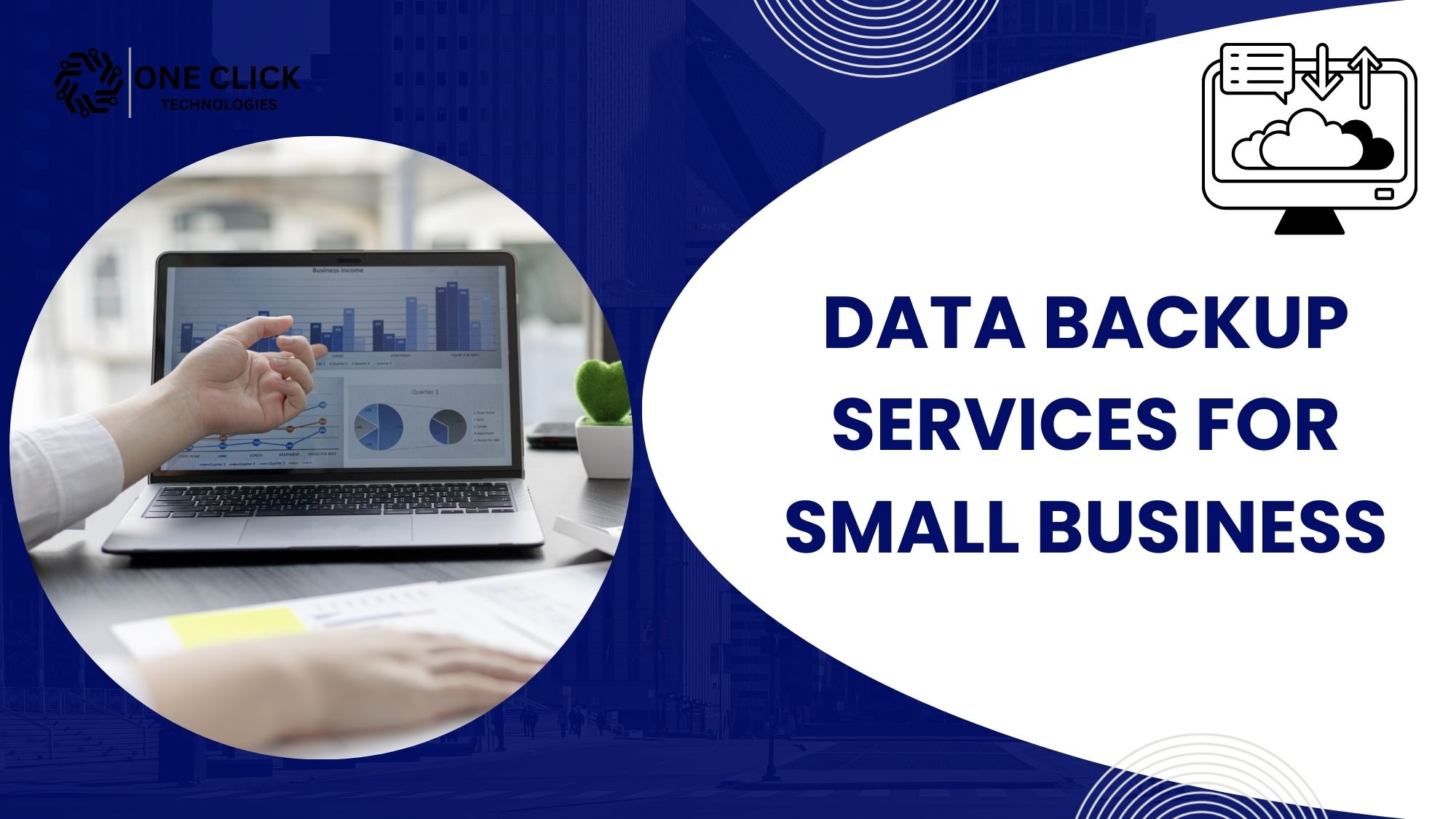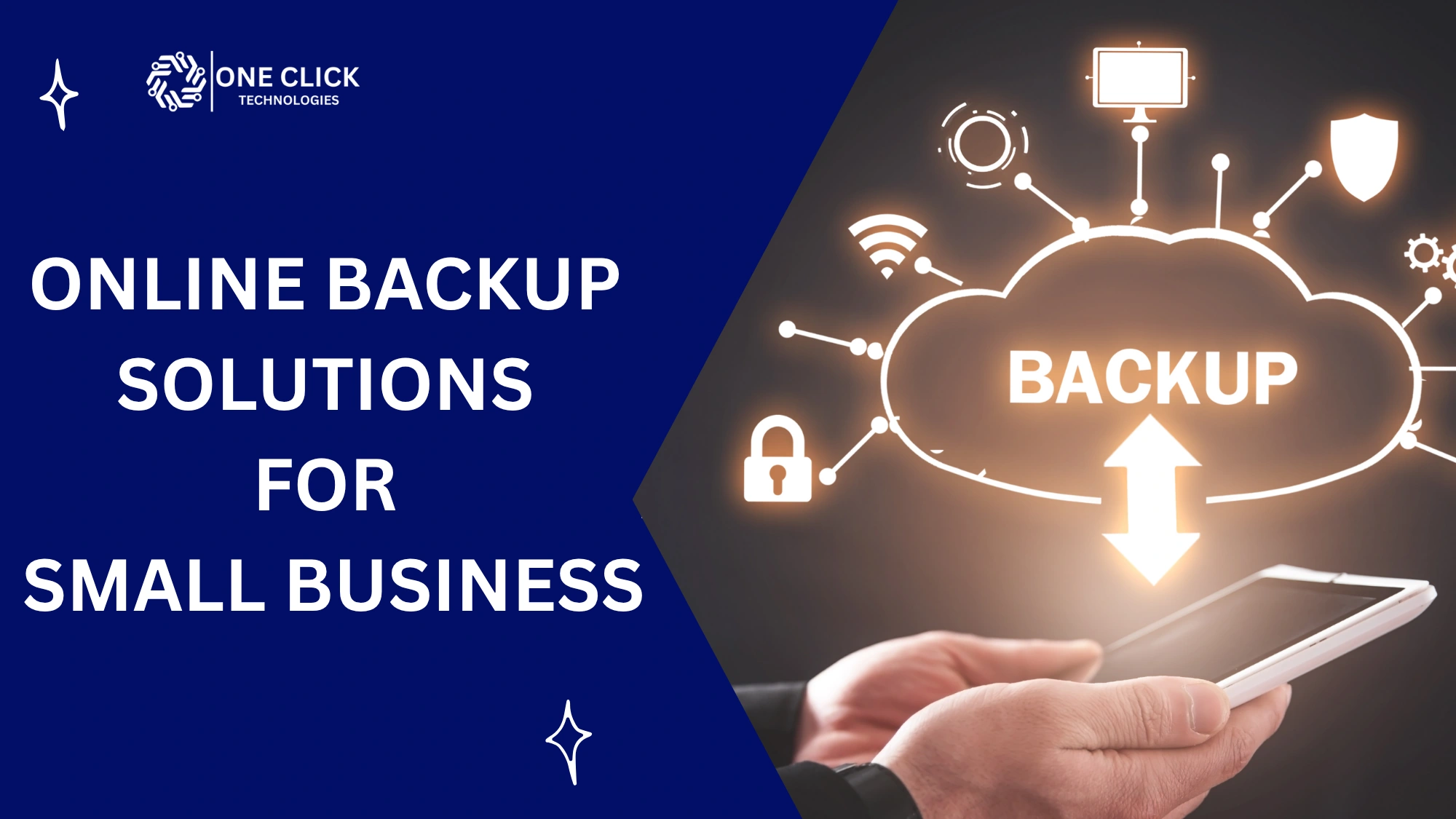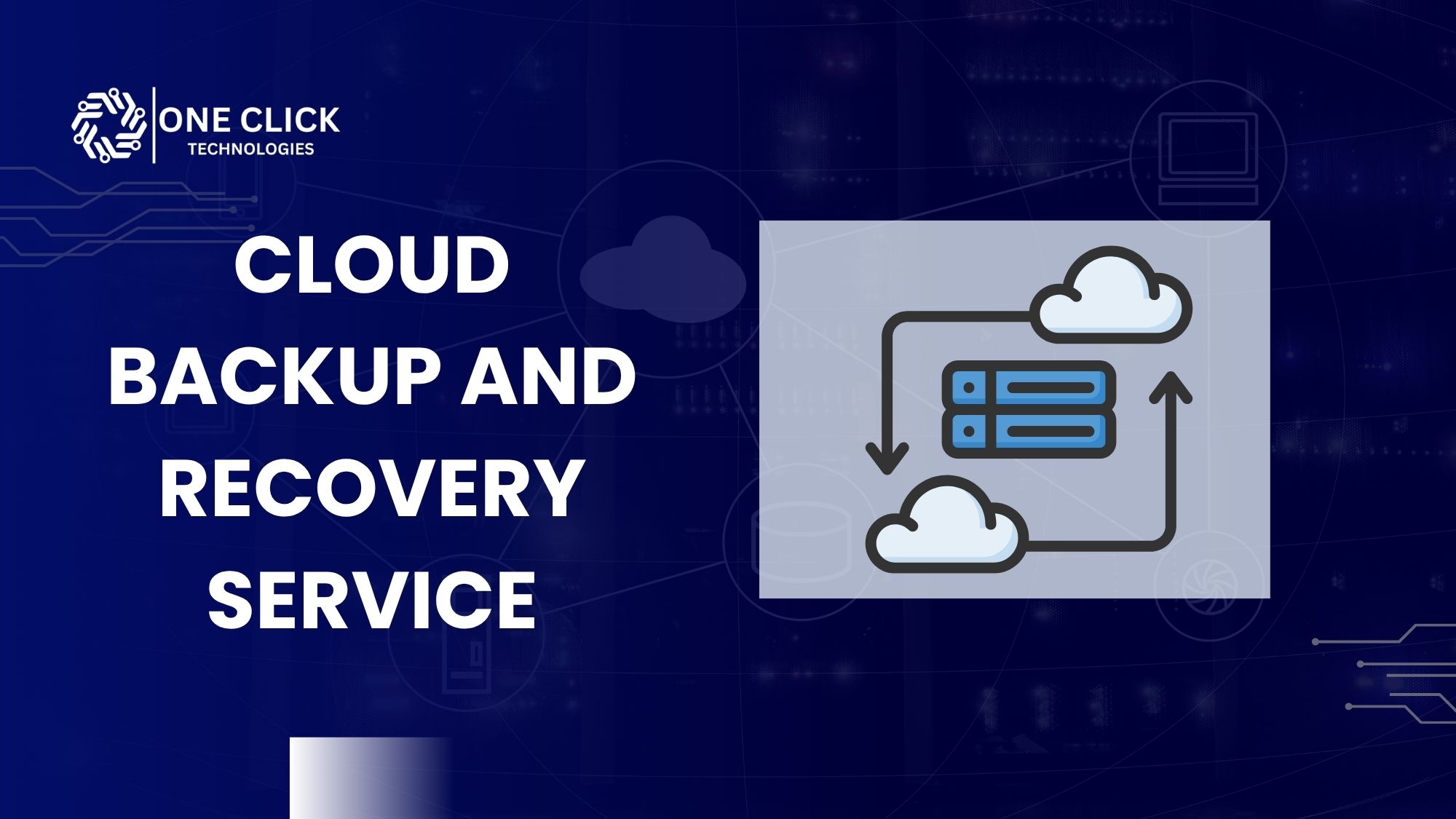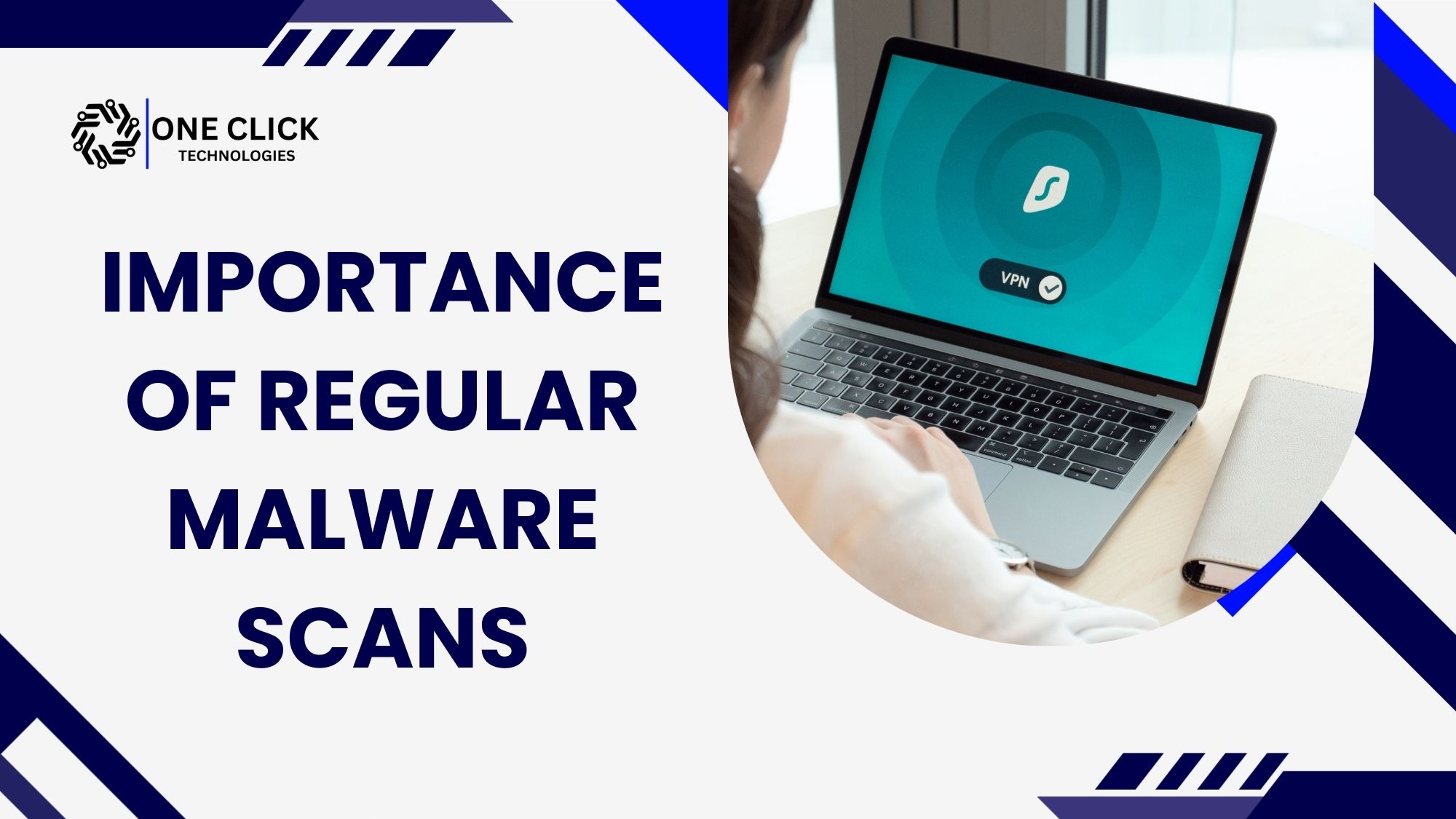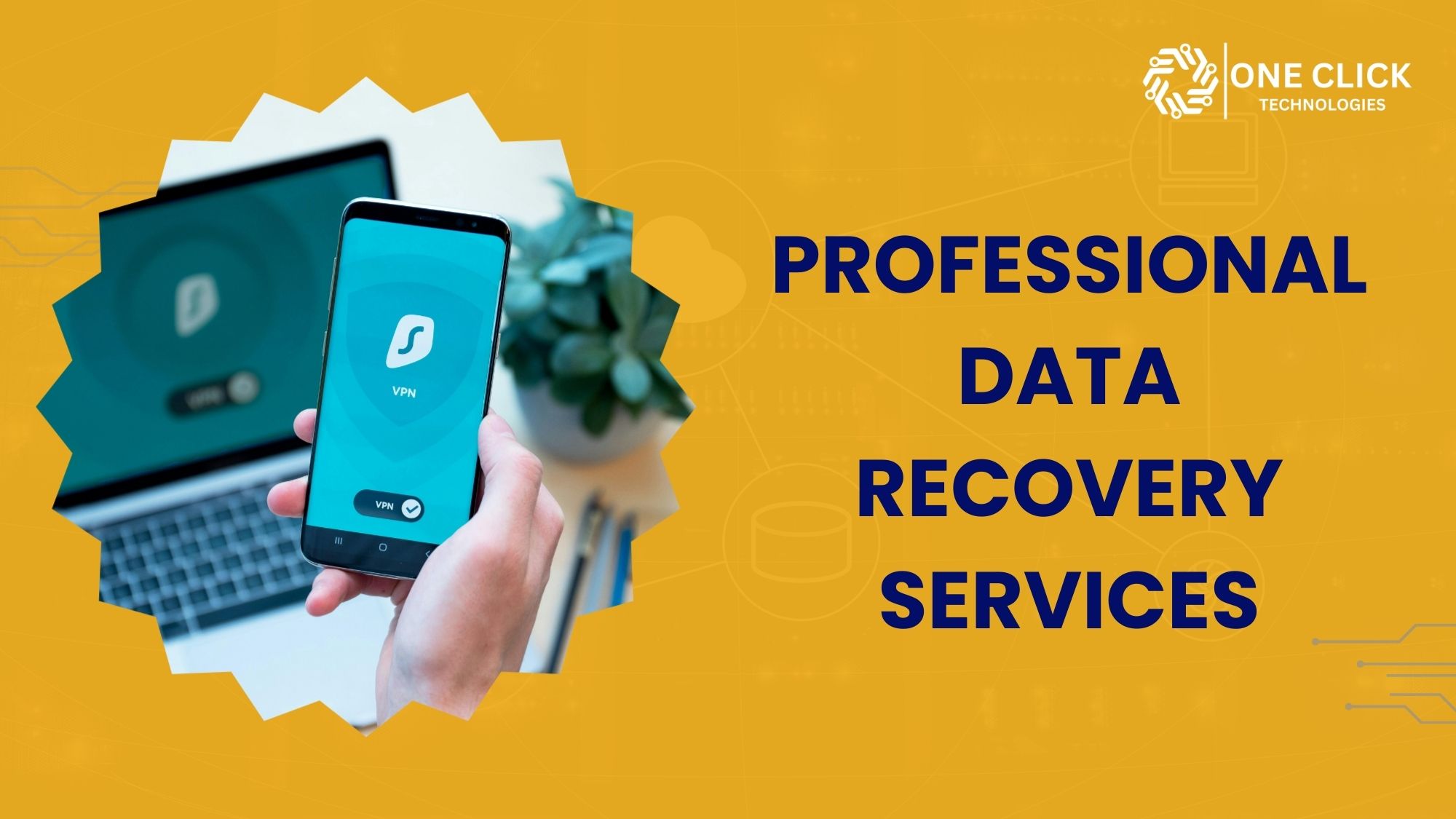Table of Contents
For many companies, data is the lifeline of the business. Customer records, employee data, financial spreadsheets, and project files all exist in digital form. A single incident whether a ransomware attack or accidental deletion can make these files disappear instantly. Data backup services for small business are designed to protect you from these disasters. By storing safe copies of your information and giving you fast recovery tools, they ensure you can recover files instantly after a disaster and continue your operations without missing a beat.
In this guide, we’ll explain what backup really means for businesses, explore the types of solutions available, share best practices, and highlight why partnering with experts like OneClick Technologies LLC provides the protection your company needs.
Why Small Businesses Can’t Afford Data Loss
Data loss is not just an IT inconvenience it’s a business problem. Here’s why:
- Lost Productivity: Employees spend hours recreating files.
- Lost Revenue: Sales stop when servers or applications are unavailable.
- Customer Impact: Missed deadlines or service interruptions affect trust.
- Legal/Compliance Issues: Many industries require strict data protection.
Even one day of downtime could cost a small business thousands of dollars. That’s why investing in backup solutions is cheaper than dealing with recovery after data loss.
👉 Simply put: Without a strong data backup strategy, your company risks more than files—you risk your reputation, revenue, and long-term growth.
What Are Data Backup Services for Small Business?
At its core, data backup services create duplicate copies of your important files and store them safely, either locally, in the cloud, or both. For small businesses, these services go beyond copying files—they ensure your company can continue running even during a disaster.
Typical business backup features include:
- Automated scheduling of backups to prevent human error.
- Multiple storage options: cloud backup, NAS, or hybrid backup solutions.
- Encrypted data transfer for data security.
- Instant disaster recovery tools to reduce downtime.
- Support for various systems, including servers, desktops, and mobile devices.
By choosing the right backup solution, a small business ensures that critical data is protected and can be restored quickly when needed.
Types of Backup Every Small Business Should Know
Different situations require different backup approaches. Here are the most common types of backup:
1. Full Backup
A full backup is a complete copy of all your data—applications, files, and system settings.
- Pros: Comprehensive protection.
- Cons: Consumes large backup storage space and takes more time.
- Best For: Initial setup or monthly archival copies.
2. Incremental Backup
An incremental backup saves only what has changed since the last backup.
- Pros: Fast, efficient, and uses less storage.
- Cons: Restoring data may take longer since multiple increments must be combined.
- Best For: Daily operations for small businesses.
3. Differential Backup
A differential backup copies all changes since the last full backup.
- Pros: Faster recovery than incremental backups.
- Cons: Takes more space than incremental backups.
- Best For: Weekly or biweekly backups.
4. Image Backup
An image backup takes a full “snapshot” of your system, including OS, settings, and apps.
- Pros: Quick full recovery.
- Cons: Large files, requires significant backup infrastructure.
- Best For: Server backup or critical workstations.
👉 The right mix of these backup methods depends on your business needs and amount of data.
Why Cloud Backup Is a Game-Changer for Small Businesses
Traditional local backups are valuable but not enough. If your office suffers theft, fire, or flood, local copies may be destroyed. That’s why cloud backup services are so critical.
Key Benefits of Cloud Backup for Small Businesses:
- Accessibility: Access your stored data anytime, anywhere.
- Scalability: Add more cloud backup space as your data sets grow.
- Security: Files are encrypted, ensuring data is protected.
- Business Continuity: Even if servers crash, you can restore files from the cloud instantly.
👉 Many small businesses use a hybrid backup solution, combining NAS and cloud storage to cover all risks.
The 3-2-1 Backup Rule: A Proven Best Practice
Experts recommend following the 3-2-1 backup rule:
- 3 copies of your data (primary + two backups)
- 2 different storage types (local NAS and cloud backup)
- 1 offsite backup copy (public cloud or managed backup)
This ensures that no matter what happens to your physical office, your files can still be recovered from an offsite backup service.
👉 Following the 3-2-1 backup rule helps small businesses achieve resilience and confidence in business continuity.
How Backup and Recovery Works in Real Time
When a disaster strikes, the speed of backup and recovery makes all the difference.
- Data Capture: Backups run automatically based on schedules.
- Secure Storage: Copies are stored on servers, NAS, or cloud storage.
- Recovery Point Objective (RPO): Defines how much data you can afford to lose.
- Recovery Process: Files are restored from the latest backup or previous versions.
- Business Continuity: Teams resume work without major delays.
👉 The result? Fast recovery options that keep your important data and workflows safe.
Benefits of Data Backup Services for Small Business
- Protect Critical Data
- From client files to contracts, everything stays safe.
- Instant Recovery
- Restore data quickly with minimal downtime.
- Disaster Recovery Planning
- Integrated disaster recovery ensures business continuity.
- Cost Savings
- Prevents losses due to downtime or ransomware.
- Peace of Mind
- Owners and employees know their business data is secure.
👉 Reliable backup solutions help businesses reduce risks and boost productivity.
Disaster Recovery vs. Backup: Understanding the Difference
| Feature | Backup | Disaster Recovery |
|---|---|---|
| Definition | Process of creating a copy of files, folders, or system data. | Strategy to restore full IT systems and operations after a failure or disaster. |
| Purpose | Protects against data loss by storing copies of important information. | Ensures business continuity by getting servers, applications, and systems online. |
| Scope | Focused only on saving and restoring data. | Covers infrastructure, servers, applications, and networks in addition to data. |
| Speed of Recovery | Allows quick restoration of files or folders. | Restores entire systems for full operational recovery. |
| Storage Method | Local drives, NAS, cloud backup, or hybrid backup solutions. | Replicated systems, secondary servers, cloud failover, or virtual machines. |
| Use Case | Best for retrieving accidentally deleted files or corrupted documents. | Best for handling ransomware, server crashes, or natural disasters. |
| Business Impact | Minimizes data loss but may not prevent downtime. | Minimizes both downtime and data loss, ensuring fast recovery. |
👉 Together, backup and disaster recovery provide a complete safety net for small businesses, ensuring both data protection and operational resilience.
Best Practices for Small Business Backup
Follow these best practices to build resilience:
- Test backups regularly.
- Use incremental backups for efficiency.
- Combine cloud backup with local backup for hybrid protection.
- Follow compliance with industry-specific data retention laws.
- Train employees on data protection awareness.
👉 Strong practices ensure your backup needs are met without gaps.
Comparing Backup Options for Small Businesses
Here’s a quick breakdown:
| Backup Type | Pros | Cons | Best Use Case |
|---|---|---|---|
| Local Backup (NAS) | Fast recovery, affordable | Risk of theft/disaster | Small offices with limited data |
| Cloud Backup | Secure, scalable, accessible | Needs internet, ongoing costs | Remote and hybrid teams |
| Hybrid Backup Solution | Combines local + cloud benefits | Slightly higher investment | Growing businesses |
👉 Choose the one that best fits your business operations and risk profile.
Why Choose Managed Backup Services
A managed backup service offers full outsourcing of backup tasks:
- Proactive monitoring of backup jobs.
- Expert-led recovery process during downtime.
- Scalable backup infrastructure for growth.
- 24/7 customer support for peace of mind.
👉 For small businesses without large IT teams, managed services are often the best backup solution.
Preventing Ransomware with Backup
Ransomware is one of the biggest threats to small businesses. Attackers encrypt your files and demand money to unlock them.
With incremental backups and cloud backup solutions, you can:
- Roll back to a safe version of your files.
- Avoid paying criminals.
- Ensure business continuity after cyberattacks.
👉 A strong backup solution is your best line of defense.
Conclusion: Protect Your Business with OneClick Technologies LLC
Data loss is inevitable—but disaster doesn’t have to be. With data backup services for small business, you can protect your company, restore critical files instantly, and ensure business runs smoothly no matter what.
At OneClick Technologies LLC, we specialize in:
- Cloud and hybrid backup strategies.
- Customized business backup solutions for small businesses.
- Secure, encrypted systems that keep your data safe.
- Expert guidance for disaster recovery and business continuity.
👉 Don’t wait until it’s too late. Contact OneClick Technologies LLC today and build a backup and recovery plan that fits your business perfectly.

